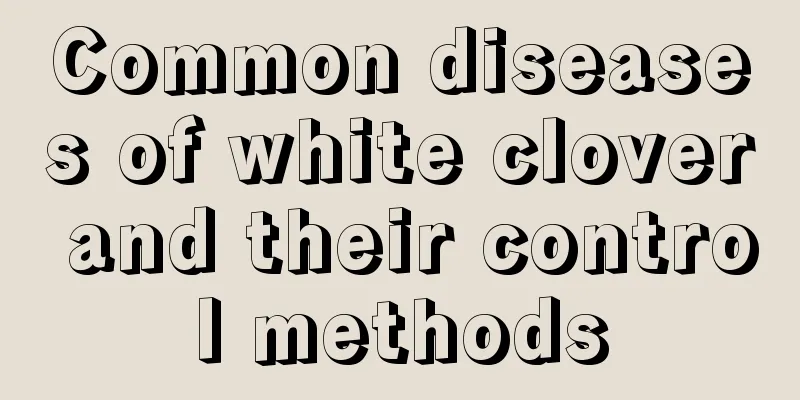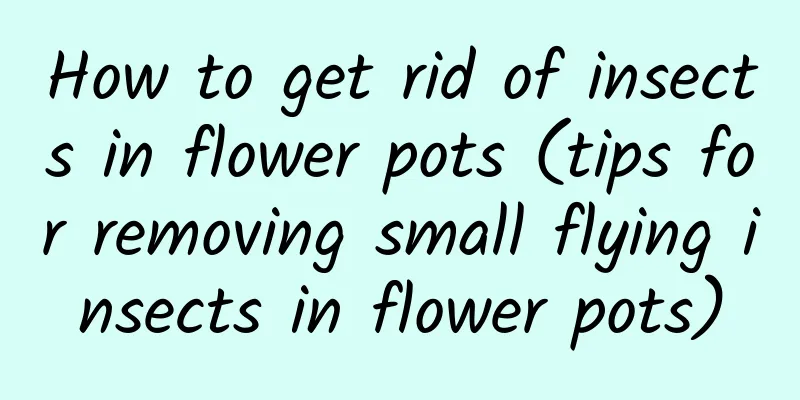Common diseases of white clover and their control methods

Common diseases of white clover: club leaf diseaseSymptomsA type of disease caused by mycoplasma infection is widespread and more serious in some areas. This disease causes the leaves of the plant to become deformed, narrow and long, with uneven notches on the edges, and the plant's growth is weak, affecting its ornamental value. The disease can be transmitted through contact or insect vectors such as leafhoppers, with the peak incidence period being July to August. Prevention and treatment methodsTo prevent and control this disease, the main measures include good potting soil management, disinfection, enhancing plant disease resistance and controlling virus vectors. Common diseases of white clover: dodderSymptomsThe seeds of dodder are very small and can be carried by white clover seeds. After germination and growth, they form dodders and parasitize on the stems and branches of white clover, absorbing its nutrients and water, causing nutrient deficiency in white clover, yellowing of the plants, stunted growth, and even death in severe cases. Prevention and treatment methodsStrengthen quarantine to prevent dodder from spreading through seeds. For chemical control, you can spray 1.5%~2% dinitro-o-cresol and dinitrophenol solution to prevent and control it. Common diseases of white clover: leaf spotSymptomsVarious spots of different shapes, sizes and colors appear on the leaves, causing the leaves to wither and fall off. Prevention and treatment methodsThe occurrence of the disease is controlled by selecting disease-free seeds, removing diseased residues, carrying out good management and maintenance, balanced fertilization, avoiding waterlogging and other measures, and fungicides such as carbendazim, methyl thiophanate (methyl thiophanate), mancozeb, etc. are sprayed for prevention and control according to the condition of the disease. Common diseases of white clover: SclerotiniaSymptomsA major devastating disease that can attack the rhizomes, stem base and lower leaves. The diseased part becomes wet and rotten and turns brown, the diseased plant rots and dies, there is a white flocculent hyphae layer at the diseased part, and black spherical or irregular sclerotia are formed in the later stage. Continuous rain or excessive watering will cause a large number of diseased plants to die and many bald spots will appear on the grass. Prevention and treatment methodsTo prevent and control sclerotinia disease, we should select disease-resistant varieties, eliminate the pathogens, improve management and timely spray pesticides such as diene sclerotinia (Nonclorid), Iprodione (Iprodione), Fucyperamide (Procymidone) and Carbendazim. |
>>: Common diseases and pests of California poppy and their control methods
Recommend
What is inorganic fertilizer?
Introduction to Inorganic Fertilizer Inorganic fe...
How to prune Chlorophytum comosum
Pruning of Chlorophytum comosum during winter dor...
Classic varieties of high cup cut roses
1. Elsa Elsa is a shrub rose. Its flowers have a ...
The language and legend of Milan flowers
Milan flower language With love, life will blosso...
What is the best fertilizer for calla lily?
Calla lily fertilization time During its growth p...
How to make hibiscus bloom more and how to care for it during the flowering period
1. How to make more flowers 1. Choose a good pot ...
Can Chlorophytum comosum be grown in water?
The thousand-leaf spider plant has a compact and ...
How to grow purple magnolia
1. Breeding environment 1. Soil: It is best to us...
What are the legends and meanings of rosemary?
1. The meaning of rosemary flower language Rosema...
How to prune blue flower
Pruning time The best time to prune blue flowered...
Causes and treatments for yellow leaves of Kalanchoe
1. Excessive watering 1. Reason: Excessive wateri...
How and when to plant white sweet potatoes
White sweet potato planting time White sweet pota...
How often should you water rosemary?
How often should you water rosemary? The frequenc...
Okra planting time and management methods
Okra , as a popular vegetable , not only has a un...
The efficacy and effects of raspberries
Edible value Raspberries have a sweet and refresh...









